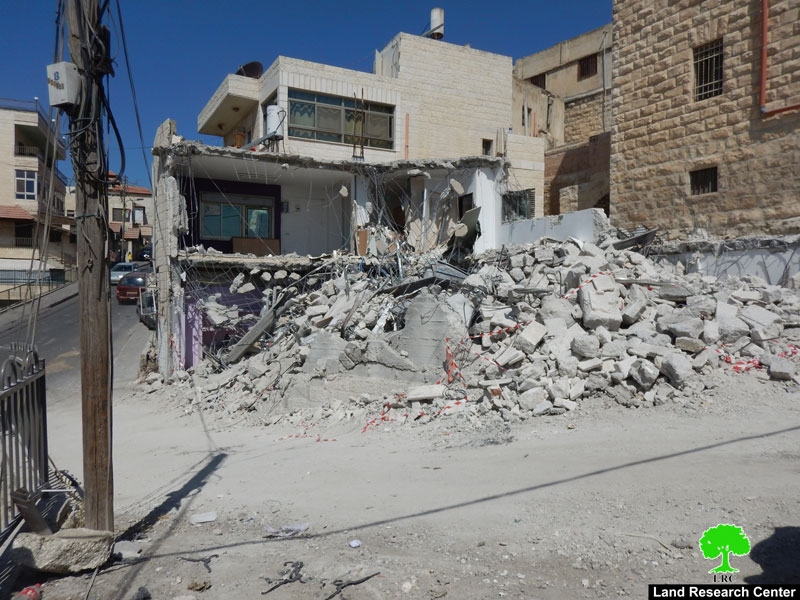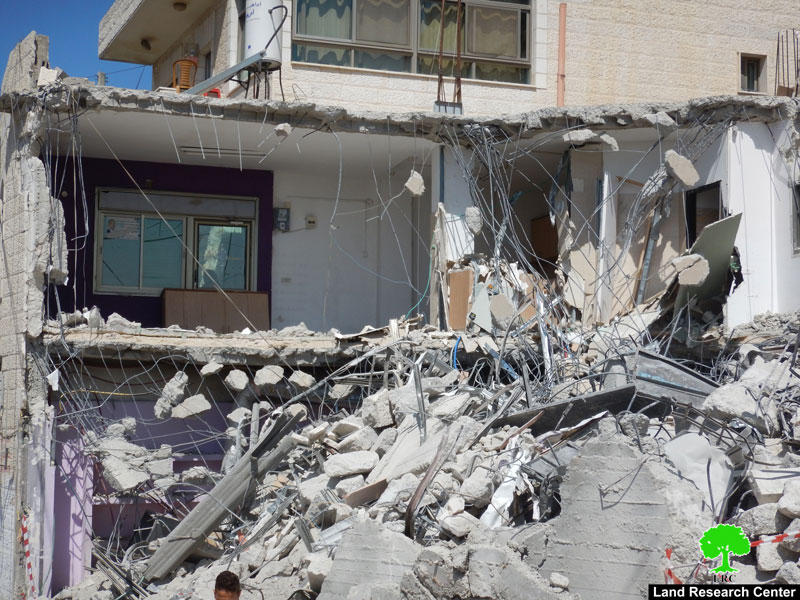2017-08-15
Israel's Occupation Forces demolish residential building in Al-Isawiya town of Jerusalem
It is reported that dozens of soldiers raided the village of Al-Isawiya on August 15, 2017 and surrounded a building owned by Hamdan family before storming-in. It should be noted that the building consists of two floors (first floor included a clothing and accessories store owned by Hani Obeid and a computer store owned by Shukri Abu Sneineh) while the second floor included a residential apartment where an international family (parents and four children) lived.


Reportedly, the municipality crews prevented the owners of the establishments from entering their store to empty them and the crews only took out some of the contents. Obeid estimated his losses to be around 70 thousand NIS while Abu Sneineh said his loss was around 20 thousand NIS.
It is lately reported that Israel Municipality has been rabidly targeting Palestinian constructions in Isawiya village on the claim of building without permit. This step came as collective punishment and included night raids, break-ins and assaults on civilians. Not only, Israeli Occupation Forces set up many checkpoints in the village and randomly shot stun grenades and bullets at residents, leaving many injured.
The area of Al-Isawiya is suffering from Israeli measures and restrictions seen in closures, checkpoints and harassments. Kids, women and elderly suffer from soldiers where dozens of youth get detained on daily basis. Houses and structures get demolished and sabotaged as a result.
Land Research Center LRC sees that demolitions contradict with all the International conventions and Humanitarian laws including:
Article 17 of the (1948) Universal Declaration of Human Rights stating: “Everyone has the right to own property alone as well as in association with others. No one shall be arbitrarily deprived of his property.”
Section ‹G› of article 23 of the (1907) The Hague Conventions asserting: “In addition to the prohibitions provided by special Conventions, it is especially forbidden to destroy or seize the enemy's property, unless such destruction or seizure be imperatively demanded by the necessities of war.”
Article 53 of the Geneva Fourth Convention (1948) declaring: “Any destruction by the Occupying Power of real or personal property belonging individually or collectively to private persons, or to the State, or to other public authorities, or to social or cooperative organizations, is prohibited, except where such destruction is rendered absolutely necessary by military operations.”
Section 1, Article 11 of the International Covenant on Economic, Social and Cultural Rights (1966): “The States Parties to the present Covenant recognize the right of everyone to an adequate standard of living for himself and his family, including adequate food, clothing and housing, and to the continuous improvement of living conditions.
This case study is part of Kan'aan Project

